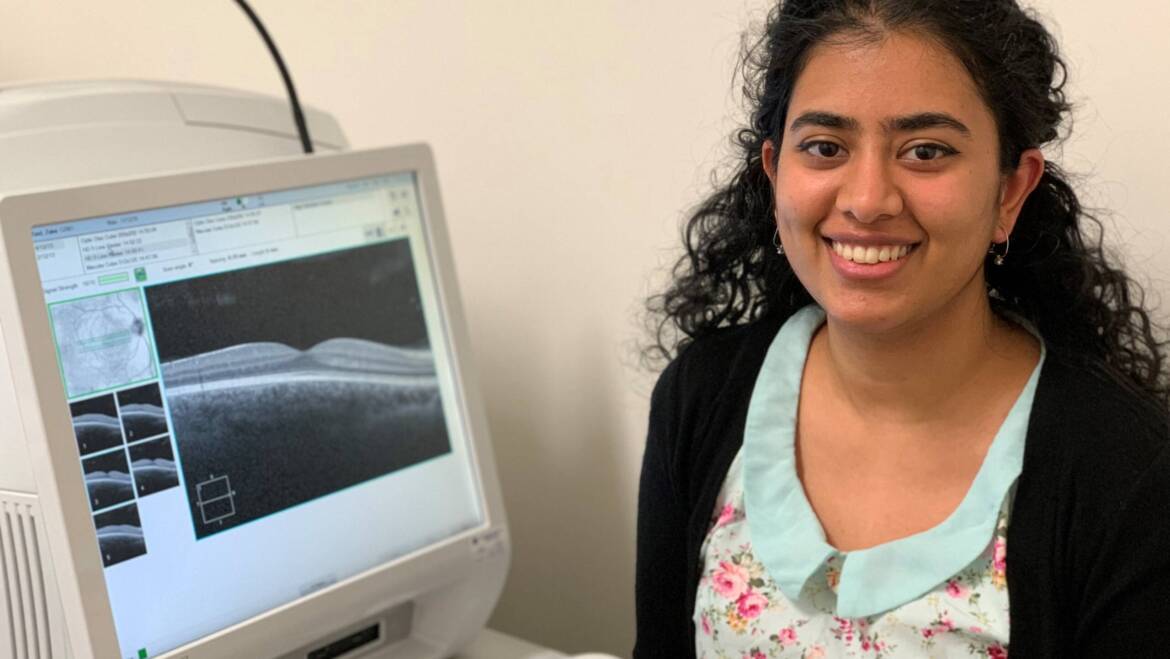Pictured: Swan Hill and Kerang Optical optometrist Moleshri Paliwal
More than half of the Australian population has a long-term vision disorder, with women making up the majority. Fifty-nine percent of all females live with a long-term disorder, compared to fifty-one percent of all males. Why is this so?
Too often we find women waiting longer than the advised period of time between eye examinations. The most common answer as to why, is because they have put the needs of their partners, elderly parents and children ahead of their own. The delay in regular examinations can lead to the development of eye diseases that could have been prevented, halted or slowed down if treatment had of been sought earlier.
This time in a woman’s life also seems to coincide with changes in hormones that can have an effect on the eye, such as during pregnancy and menopause. Progesterone and estrogen levels change through these life phases, which can lead to symptoms such as vision fluctuations, dry eyes, spots and floaters. The risk of developing macula degeneration, glaucoma, cataracts and dry eyes is increased in post-menopausal women.
The beauty world is continuing to evolve, with many new products on the market and the rise in popularity of cosmetic procedures with the general public. Over the past few years we have seen an increase in the number of women seeking help for extreme dry eye, allergic reactions, eyelids stuck together with glue, and eye infections. Such presentations are a reminder to regularly clean or change cosmetic tools, and to seek out qualified cosmetic professionals who maintain high levels of hygiene practices within their clinics.
As we say to all patients, leading an active, healthy lifestyle, eating a good diet, and following up regularly on check ups with your GP, optometrist and other allied health professionals are important steps in ensuring we can all lead our best life possible.
The Optometry Australia website initiative Good Vision for Life, provides valuable information for the patients on their eye health regardless of gender. Some habits they suggest can be formed to ensure we are protecting our eyesight include:
- Wear sunglasses when outdoors through the year, not just during summer
- Learn to look for the warning signs of poor eye health and vision issues
- Always wear eye protection when doing DIY activities around the home or at work
- Regularly replace make up products and maintain make up hygiene
- If a contact lens wearer, make sure you maintain a high level of hygiene and correctly handle and store your lenses
If you have any questions or concerns regarding your eye health or vision, or think its time to have an eye examination book an eye test with us today via the book now button on the home page.

